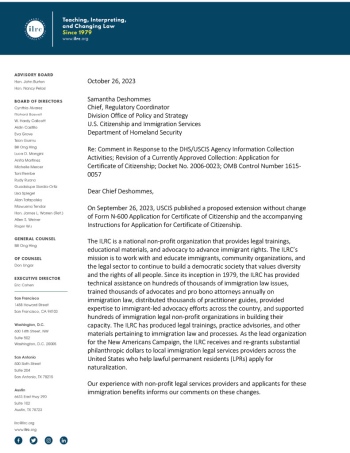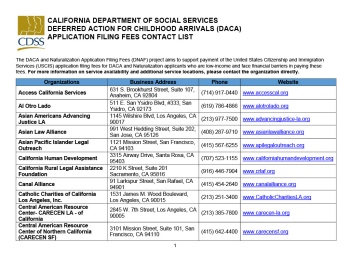Introduction to Special Immigrant Juvenile Status (SIJS)
This webinar will provide an introduction to special immigrant juvenile status (SIJS) - a unique path to immigration status for young people under the age of 21. We will provide an overview of the legal requirements and process of seeking SIJS and...
Essentials of Asylum Law
This publication provides an overview of asylum law for advocates new to representing asylum clients, as well as seasoned practitioners needing a thorough review of current standards. Combining innovative legal arguments on currently developing...
Public Charge and Immigration Law
While public charge has been a part of our immigration laws for more than a hundred years, changes including actions taken by the Trump and Biden administrations brought renewed attention to public charge law. The Trump-era changes to public charge...
The U Visa: Obtaining Status for Immigrant Survivors of Crime
The U Visa: Obtaining Status for Immigrant Survivors of Crime will guide you through the entire process of handling an immigration case for a U visa petitioner—from eligibility screening for U nonimmigrant status, to communicating about the waitlist...
Parole in Immigration Law
The Immigrant Legal Resource Center created the first comprehensive manual about parole in immigration law in 2016 to provide practitioners with a one-stop guide to the legal requirements of all the different types of parole, practice pointers about...
California Post-Conviction Relief for Immigrants: How to Use Criminal Courts to Erase the Immigration Consequences of Crimes
California Post-Conviction Relief for Immigrants: How to Use Criminal Courts to Erase the Immigration Consequences of Crimes guides advocates through how to use criminal courts to erase or mitigate the immigration consequences of convictions. This...
Naturalization and U.S. Citizenship: The Essential Legal Guide
The Immigrant Legal Resource Center continues to write and publish the most accessible and comprehensive guide on citizenship and naturalization in the country. This indispensable guide thoroughly addresses the entire process of representing a...

